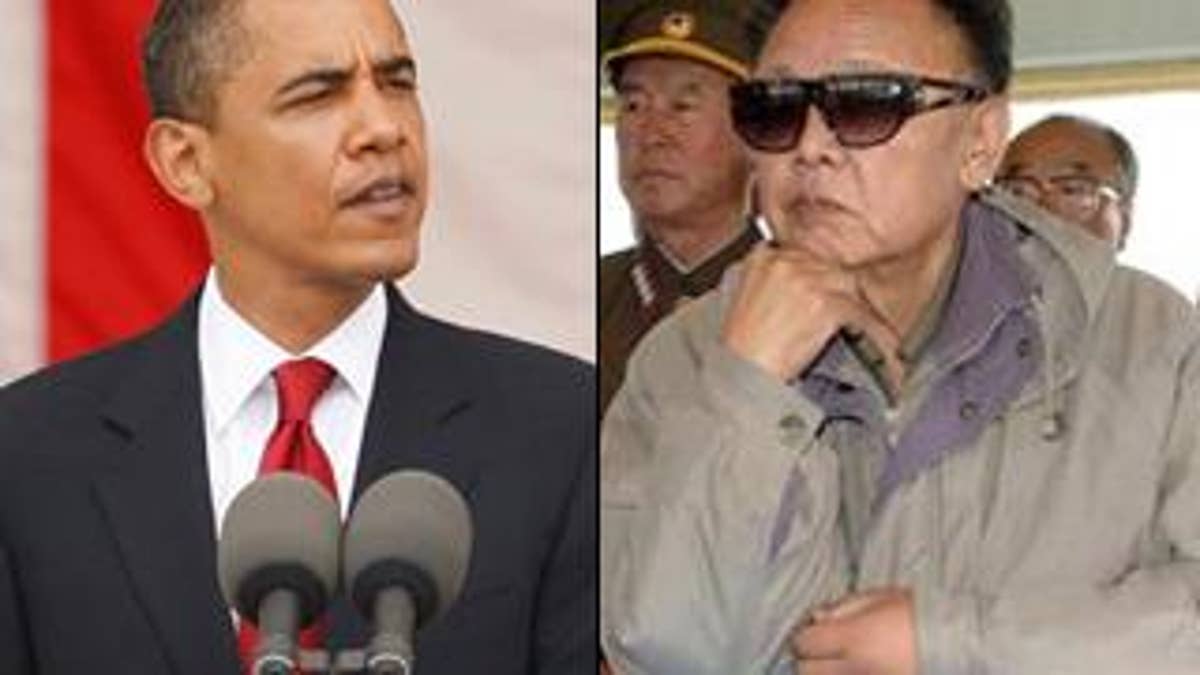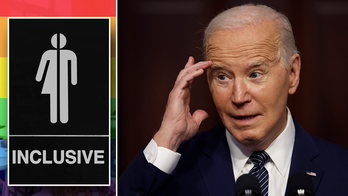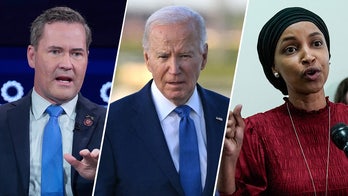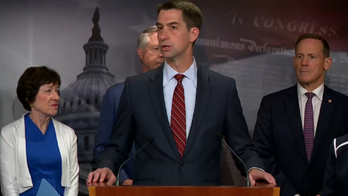
The Obama White House has made clear in the past its impatience with North Korea for the communist country's provocative rhetoric and displays of firepower, but so far Saturday, the administration -- possibly by design -- has remained silent on Korea's latest missile barrage.
North Korea launched seven mid-range missiles off its eastern coast, presumably timed to coincide with the United States' Independence Day. It was a show of firepower that echoed a North Korea's missile launch three years ago that also fell on the Fourth of July holiday.
U.S. officials have said they don't expect a launch anytime soon of long-range missiles capable of hitting U.S. soil. Even so, the latest round of missiles is in violation of a U.N. resolution and drew global expressions of condemnation and concern.
In Washington, the White House had no immediate comment. But two senior officials in President Barack Obama's administration, speaking in advance of the launches, told the Associated Press that any reaction was likely to be muted to avoid giving attention to Pyongyang or antagonize it. They spoke on condition of anonymity because they were not authorized to discuss the matter publicly.
Washington, however, continues to move to enforce U.N. as well as its own sanctions against the isolated regime for its May 25 nuclear test.
The number of missiles launched Saturday was the same as in the 2006 launch, though back then, North Korea also launched a long-range rocket that broke apart and fell into the ocean less than a minute after liftoff.
South Korea said Saturday's missiles likely flew more than 250 miles, apparently landing in waters between the Korean peninsula and Japan. South Korean officials the launches came throughout the day and were part of military exercises. The North, which had warned ships to stay away from waters off the east coast through July 10, also fired what are believed to have been four short-range cruise missiles Thursday.
Speculation had been building for weeks that the launches were coming. The key question has been whether the North might fire an intercontinental ballistic missile, as it vowed to do in late April.
South Korea and Japan both condemned the launches, with Tokyo calling them a "serious act of provocation." Britain and France issued similar statements.
Russia and China, both close to North Korea, expressed concern over an "escalation of tension in the region," the Russian Foreign Ministry said in a statement after a meeting in Moscow.
North Korea has engaged in a series of acts this year widely seen as provocative. It fired a long-range rocket it said was a satellite in early April, and in late May it carried out its second underground nuclear test following the first in late 2006.
The country has also stoked tensions with rival South Korea and last month threatened "thousand-fold" military retaliation against the U.S. and its allies if provoked.
In addition, North Korea convicted two American journalists last month and sentenced them to 12 years hard labor for illegally entering the country. It is also holding a South Korean worker for allegedly denouncing its political system.
The secretive communist country is believed undergoing a political transition in which 67-year-old leader Kim Jong Il appears to be laying the groundwork to transfer power to one of his sons. Kim himself took over from his late father, the country's founder.
Despite a Japanese newspaper report last month that one might be launched toward Hawaii in early July, U.S. officials have noted no such preparations, which are complex, usually take days and are often observable by spy satellites. Still, that hasn't stopped Washington from boosting missile defenses as a precaution.
South Korea's Yonhap news agency suggested launch activity may be winding down, at least for now. It reported late Saturday, citing an unidentified military official, that the North was pulling personnel from its missile launch site and allowing ships to sail again off the coast. The Defense Ministry said it could not confirm the report.
North Korea's state news agency did not mention the launches, so it was hard to grasp Pyongyang's true intentions. Officials and analysts, however, said they showed the country remains happy to stand up to the international community and appears unwilling to give in to efforts to punish it.
"I think it's a demonstration of their defiance and rejection of the U.N. Security Council Resolution 1874, for one thing, and to demonstrate their military power capabilities to any potential adversaries" as well as potential customers for its weapons, said Daniel Pinkston, a Seoul-based analyst for the International Crisis Group think tank.
Pinkston also said that there was "certainly a political aspect connected" to the launches and that July 4 was perhaps a "symbolic date," suggesting the timing was not a coincidence.
Resolution 1874, which was approved last month and which condemned the North's nuclear test, was the third to be passed by the U.N. Security Council against the country since 2006. All three ban North Korea from launching ballistic missiles.
A senior official in South Korea's presidential office said that while the launches were part of military exercises, "North Korea also appeared to have sent a message to the U.S.," though he did not elaborate.
Analysts have said North Korea's saber rattling is partially aimed at pressuring Washington to engage in direct negotiations. North Korea is believed to desire diplomatic relations and a peace treaty to formally end the 1950-53 Korean War.
Obama's administration has offered dialogue, but it says North Korea must return to stalled international talks on its denuclearization and stop engaging in what Washington sees as provocative behavior threatening allies South Korea and Japan.
Paik Hak-soon, an expert on North Korea at the Sejong Institute, a think tank near Seoul, rejected the idea that the North chose July 4 to confront or annoy the U.S. on its national day.
He said the launches were more likely a warning to the international community against enforcing U.N. sanctions, which call for searches of North Korean ships suspected of carrying banned items, such as nuclear or missile parts.
He said North Korea will continue to carry out more missile and nuclear tests in the future, as long as relations with the U.S. and South Korea remain tense.
"The structure of confrontation is there, intact," he said.
The Associated Press contributed to this report.




